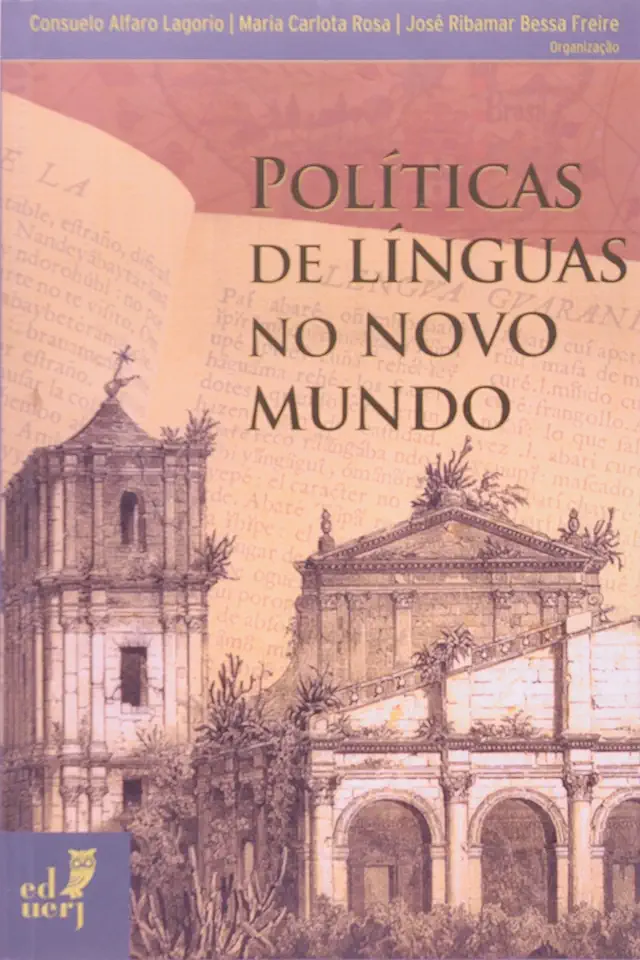
Language Policies in the New World - Consuelo Alfaro Lagorio
Language Policies in the New World: A Comprehensive Exploration of Language Policies and Practices in the Americas
Introduction: Unveiling the Significance of Language Policies
In the tapestry of human societies, language stands as a powerful force that shapes identities, fosters communication, and influences cultural dynamics. Language policies, as the guiding principles that govern the use of languages within a society, play a pivotal role in shaping linguistic landscapes and impacting the lives of individuals and communities.
Exploring the Book's Key Themes
Consuelo Alfaro Lagorio's groundbreaking work, "Language Policies in the New World," delves into the intricate web of language policies and practices that have shaped the Americas. Through a comprehensive analysis of historical and contemporary cases, the book sheds light on the complex interplay between language, power, and society.
Chapter 1: The Colonial Legacy and Linguistic Diversity
The book begins by examining the profound impact of European colonization on the linguistic diversity of the Americas. Lagorio meticulously traces the imposition of European languages, the suppression of indigenous languages, and the emergence of multilingual societies. This chapter provides a critical understanding of the historical roots of language policies and their enduring consequences.
Chapter 2: Language and National Identity
In the second chapter, Lagorio explores the intricate relationship between language and national identity. She analyzes how language policies have been instrumental in constructing national narratives, fostering a sense of belonging, and shaping the contours of citizenship. This chapter highlights the role of language in nation-building and the challenges of managing linguistic diversity within nation-states.
Chapter 3: Language Rights and Indigenous Peoples
The third chapter focuses on the crucial issue of language rights for indigenous peoples. Lagorio examines the historical marginalization of indigenous languages and the ongoing struggles for linguistic recognition and revitalization. This chapter emphasizes the importance of respecting linguistic diversity and promoting indigenous languages as a means of preserving cultural heritage and empowering indigenous communities.
Chapter 4: Language Education and Social Justice
In the fourth chapter, Lagorio delves into the realm of language education and its implications for social justice. She analyzes the role of language policies in shaping educational opportunities, promoting linguistic equality, and addressing the challenges faced by linguistic minorities. This chapter highlights the transformative potential of language education in fostering social inclusion and empowering marginalized communities.
Chapter 5: Language Policy in a Globalized World
The final chapter explores the impact of globalization on language policies and practices. Lagorio examines the rise of English as a global lingua franca, the challenges of linguistic hegemony, and the emergence of new forms of linguistic diversity. This chapter provides insights into the evolving dynamics of language policies in an interconnected world.
Conclusion: A Call for Linguistic Pluralism and Social Justice
"Language Policies in the New World" concludes by emphasizing the urgent need for language policies that promote linguistic pluralism, respect linguistic diversity, and advance social justice. Lagorio argues for a transformative approach to language policy that recognizes the value of all languages, empowers marginalized communities, and fosters inclusive societies.
Why You Should Read This Book
"Language Policies in the New World" is a must-read for anyone interested in understanding the complex interplay between language, power, and society. With its comprehensive analysis of historical and contemporary cases, this book provides a profound insight into the role of language policies in shaping the Americas.
Whether you are a scholar, a policymaker, an educator, or simply someone curious about the world's linguistic diversity, this book offers a wealth of knowledge and inspiration. It is a call to action, urging us to embrace linguistic pluralism and work towards a more just and equitable world where all languages are valued and respected.